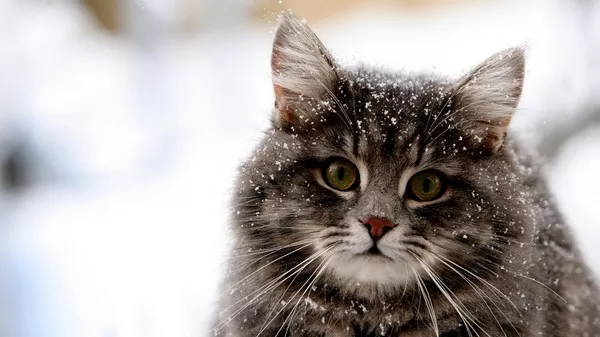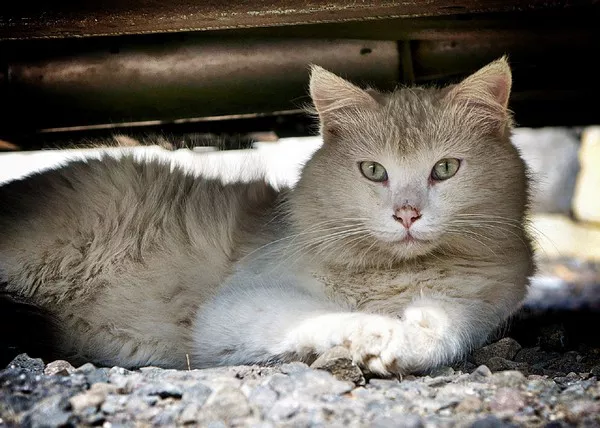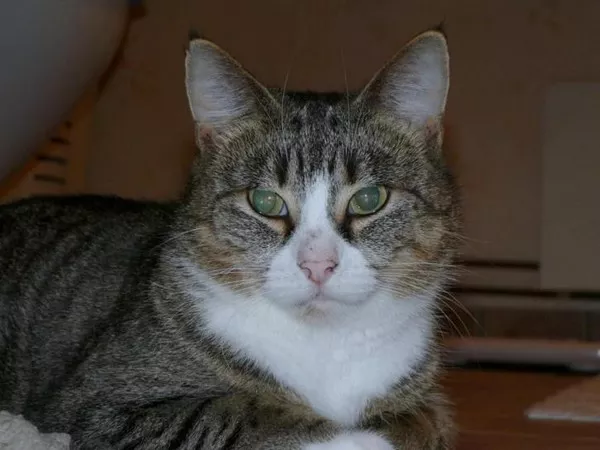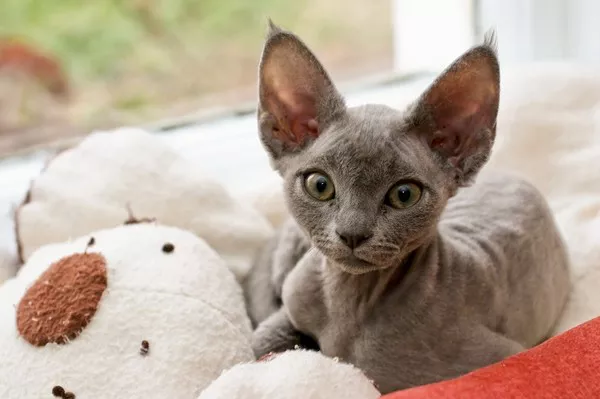If you’ve just returned from a trip and found your cat acting unusually after their stay at a boarding facility, you’re not alone. Many cat owners notice their cats exhibiting strange behaviors after spending time in a boarding environment, and this can be a cause for concern. While it may seem out of character, it’s important to understand that changes in behavior following cat boarding are relatively common, especially given the disruption to their usual routine and environment.
Understanding post-boarding behavior is crucial to helping your cat readjust to being back at home. In this article, we will explore the common reasons why your cat might be acting weird after boarding, outline specific behaviors to watch for, and provide guidance on how to ease your cat’s transition back into its normal routine.
Common Behaviors Cats Might Exhibit After Boarding
Boarding facilities are designed to provide care for your cat while you’re away, but they can still be a stressful experience. Cats are creatures of habit, and a sudden change in environment, unfamiliar people, and different routines can cause emotional and physical reactions. Many cats will exhibit unusual behaviors during their adjustment period after cat boarding, which can last anywhere from a few days to a week or more, depending on the individual cat.
Common behaviors observed after cat boarding may include:
Changes in appetite: Cats may eat less or more than usual.
Hiding: Cats may retreat to secluded areas of the home.
Litter box changes: A cat may show signs of discomfort or avoid using the litter box.
Increased grooming or over-grooming: Cats may groom more than usual to relieve stress or anxiety.
Vocalization: A cat may become more vocal, meowing or crying more than usual.
Aggression or irritability: A normally calm cat may become irritable or even aggressive.
Understanding the possible causes of these behaviors can help you provide the right support for your cat.
Factors That Could Contribute to These Behaviors
Several factors contribute to the unusual behaviors your cat may display after cat boarding. These factors can be related to stress, environmental changes, or even potential health issues that may have developed during the boarding stay.
1. Stress and Anxiety
One of the leading causes of post-boarding behavior changes in cats is stress and anxiety. Cats are territorial animals, and they thrive on routine. When they are placed in an unfamiliar environment with new smells, sounds, and people, it can be overwhelming. The boarding facility may be bustling with activity, and the lack of familiar sights, sounds, and scents from their home can trigger anxiety in your cat.
Cats may also experience separation anxiety, particularly if they are very attached to their owners. The absence of their primary caregiver can lead to feelings of insecurity and unease. The boarding environment, although safe and caring, is simply not their home, and this disruption can have a lasting impact.
2. Adjustment Period
Just as it may take time for your cat to adjust to being in the boarding facility, it may also take time for them to readjust to their home environment. After being away for some time, your cat may feel disoriented or confused when they return. They may need time to reorient themselves to their familiar surroundings, even though everything may seem “normal” to you.
For some cats, the readjustment period can involve regaining their sense of safety and comfort within their own home. It’s also worth noting that the duration and nature of the boarding experience can influence how long it takes for your cat to readjust. A short stay at the boarding facility may lead to a quicker recovery, while a longer stay may result in more pronounced behavioral changes.
3. Health Concerns
While the majority of post-boarding behavior changes are linked to stress, it’s important not to overlook the possibility of underlying health concerns that may have developed during the boarding period. Though boarding facilities take great care of the animals they host, cats can still pick up illnesses, injuries, or even stress-related conditions while in the care of others.
Your cat could have contracted a mild illness, such as a respiratory infection, digestive upset, or a skin condition, which might not be immediately obvious. Additionally, stress and anxiety can also trigger other health issues, such as urinary problems or gastrointestinal distress, which could exacerbate the unusual behavior you’re seeing.
Possible Reasons for Unusual Behavior After Boarding
Understanding the specific reasons for your cat’s behavior after boarding can help you pinpoint the source of the issue and address it effectively. Below are some of the common reasons why your cat might be acting weird after their boarding experience:
Stress and Anxiety from the Boarding Environment
As mentioned earlier, stress is a significant factor in post-boarding behavior. The unfamiliarity of the boarding environment can create feelings of anxiety in your cat. Cats are creatures of habit, and their routines are disrupted when they’re placed in a boarding facility. The new sounds, smells, and people can lead to heightened stress levels, which may manifest in various ways once they return home. Your cat may hide more than usual, refuse to interact with family members, or even develop a temporary loss of appetite.
Changes in Routine and Feeding Habits
Boarding facilities often follow their own feeding schedules, which may not align with your cat’s usual meal times or food preferences. Cats are creatures of routine, and any change in their feeding schedule can throw off their eating habits. Some cats may eat less after boarding, while others may overeat due to the stress or due to being provided different types of food while away. This can cause temporary digestive upset or changes in litter box habits.
Health Concerns from the Boarding Facility
While most boarding facilities have strict cleanliness and health protocols, there’s always the possibility that your cat may have picked up an illness during their stay. Cats in boarding facilities interact with other cats, and as a result, they may be exposed to contagious illnesses such as upper respiratory infections, feline herpesvirus, or gastroenteritis. If your cat is showing signs of illness such as vomiting, diarrhea, or lethargy after boarding, it’s important to consult a veterinarian.
Common Behaviors to Watch For After Boarding
If your cat has recently returned from cat boarding, there are several behaviors you should monitor to determine how they’re adjusting and whether any further action is necessary.
1. Hiding or Avoidance
One of the most common behaviors cats exhibit after boarding is increased hiding or avoidance of interaction. This behavior is often a sign that your cat is feeling anxious or overwhelmed. It’s natural for cats to seek out a quiet, secluded place when they’re feeling stressed. If your cat is retreating to a corner or under furniture and is avoiding you or other family members, it’s likely a sign that they are still adjusting to their home environment.
2. Changes in Appetite
Changes in appetite are another common behavior after boarding. Some cats may eat less due to stress, while others may overeat. Stress-related changes in appetite can lead to either weight loss or weight gain, both of which should be monitored closely. If your cat refuses to eat for more than a day or shows signs of not eating at all, consult your vet to rule out any health concerns.
3. Altered Litter Box Habits
After boarding, you may notice that your cat’s litter box habits have changed. Stress can sometimes cause a cat to stop using the litter box altogether, or they may urinate or defecate outside the box. On the other hand, some cats may exhibit more frequent urination or litter box avoidance. Monitor your cat’s behavior and make sure they are using the litter box appropriately. If the issue persists, a visit to the vet may be necessary.
4. Excessive Grooming
Stress and anxiety can also lead to increased grooming or over-grooming. Cats may lick, chew, or bite at their fur as a way to self-soothe. In some cases, this can lead to hair loss or the development of sores. If your cat is grooming excessively, it’s important to keep an eye on their behavior and take them to the vet if the grooming becomes compulsive or causes physical damage to their skin or fur.
How to Help Your Cat Readjust After Boarding
While the transition back to their home environment can be stressful for your cat, there are steps you can take to help them readjust and feel comfortable once again.
1. Create a Calm Environment
The first step in helping your cat readjust is to provide a calm, quiet, and comfortable space for them. Set up a cozy area where they can relax without being disturbed. Avoid loud noises, sudden movements, or changes to their environment, and allow them the space to explore and acclimate at their own pace.
2. Gradual Reintroduction to Routine
Slowly reintroduce your cat to their usual routine, including feeding times, play sessions, and cuddles. Stick to the schedule they are familiar with and allow them to adjust to their usual activities at their own pace. Avoid overwhelming your cat with too many changes all at once.
3. Monitor Their Health
While most behavior changes are linked to stress, it’s still important to monitor your cat’s health after boarding. If your cat’s behavior doesn’t improve within a few days, or if you notice any concerning symptoms like vomiting, diarrhea, or lethargy, it’s best to consult a veterinarian for a health check-up.
4. Seek Veterinary Advice
If your cat’s behavior does not improve or worsens after a few days, it’s important to seek veterinary advice. Persistent unusual behavior can sometimes be a sign of an underlying health issue, and a vet visit may be necessary to rule out illnesses or injuries that could have occurred during cat boarding.
Conclusion
Cats often exhibit unusual behaviors after cat boarding, but in most cases, these behaviors are a natural result of stress, anxiety, and the need for an adjustment period. By creating a calm environment, gradually reintroducing your cat to their usual routine, and monitoring their health, you can help ease their transition back home. However, if the unusual behavior persists or if you notice signs of illness, it’s important to consult with a veterinarian to ensure that your cat is in good health.
Related Topics



























